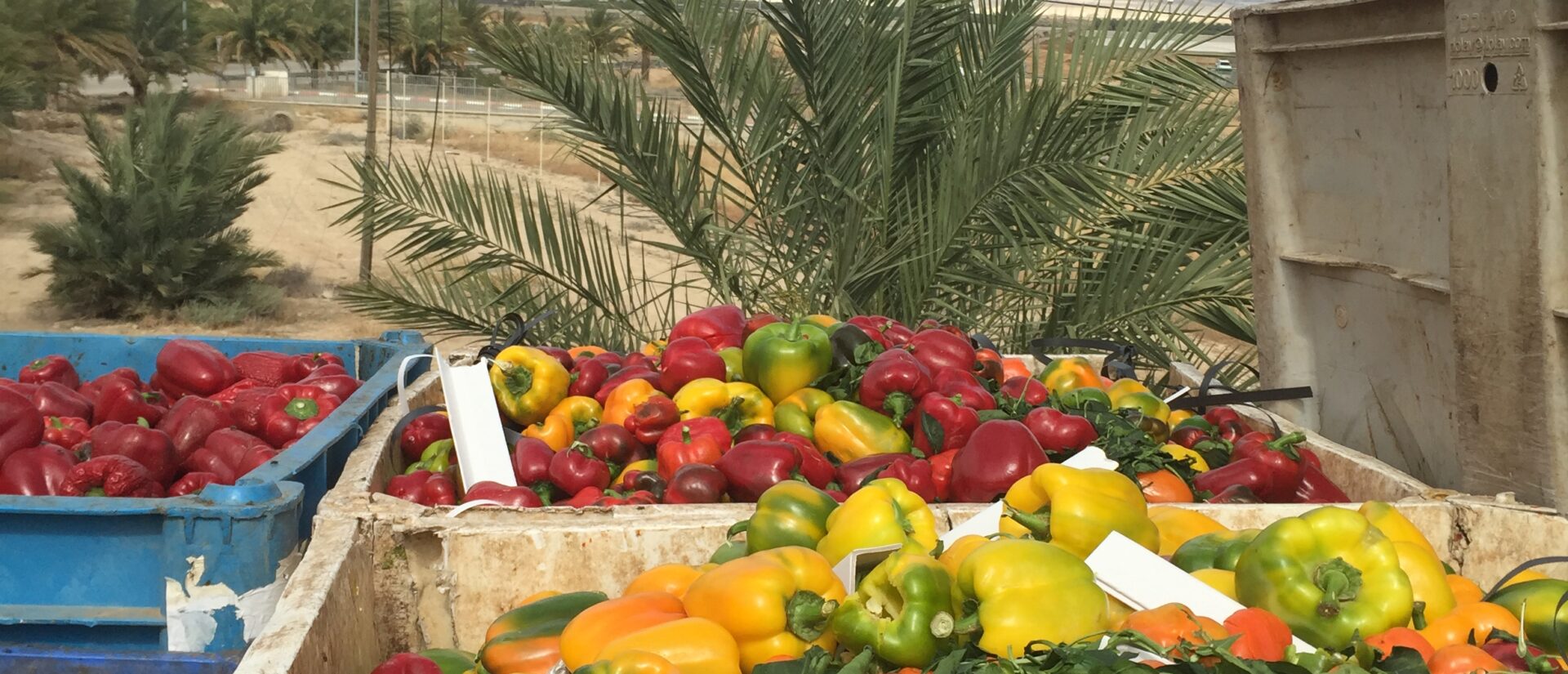
Supermarkets violate international standards and are linked to human rights violations
Israeli settlements in the occupied Palestinian territories constitute a violation of international humanitarian law, and result into serious human rights violations. However, Dutch supermarkets continue to import and sell products from those settlements, including fruits and vegetables. As a result, supermarkets profit from companies that strengthen and expand illegal settlements. In its paper ‘Trading settlement products and the role of Dutch supermarkets in human rights violations’ SOMO concludes that it is time for supermarkets to take responsibility and for the government to adopt binding rules.
Both the international community and the Dutch government recognise that the settlements are a violation of international law. Moreover, the settlements are one of the main obstacles to a solution of the Israeli-Palestinian conflict and lead to a series of human rights violations, such as violence against Palestinians by settlers, land expropriation for agricultural production in the settlements, and improper use of water by the settlements at the expense of the Palestinian population. “International trade between the settlements and companies such as supermarkets is one of the driving forces behind the settlements”, says Shawan Jabarin, director of Palestinian human rights organization Al Haq. “To end these human rights violations, it is essential to stop the trade in settlement products”.
Regulatory framework
Earlier this month the umbrella organisation of Dutch supermarkets, CBL, announced that it will start listing the settlement origin on products. This in contrast to the current practice in which products from both the settlements and Israel are labelled ‘made in Israel’. While this will properly inform consumers about the origin of fruits and vegetables from the settlements, SOMO emphasises that correct labelling does nothing to end the human rights violations connected to the import and marketing of settlement products.
On the level of the Dutch government there currently exists a lack of clear legislation and rules concerning the issue. The government expects the supermarkets to take their own responsibility. It refers to existing international standards such as the OECD guidelines which states that companies should prevent becoming linked to human rights violations either as a result of their own practices, via the products they market or the suppliers they work with. However, supermarkets continue to act in contradiction with these guidelines and continue to wait for more guidance from the government.
Transparency and supply chain responsibility
Trading settlement products and the role of Dutch supermarkets in human rights violations
SOMO argues that buying and selling settlement products is not in line with the OECD guidelines.
“Settlements products cannot be seen in isolation from the illegal status of the settlements and the human rights violations as a result of the settlements”, says Anne Schuit, researcher at SOMO. “Supermarkets should be aware of these violations and take steps to prevent or end their involvement in violations”.
Wednesday 20 May the Dutch Parliament will have a debate on the situation in Israel and the occupied Palestinian territories. SOMO calls on the government to implement mandatory human rights due diligence standards for supermarkets and food companies, obliging them to analyse the actual and potential impact on human rights in their supply chain and to take effective steps to prevent or end their involvement in violations. If not, this vicious circle, which paves the way to serious human rights violations and breaches of international law, will continue to exist.
The report ‘Trading settlement products and the role of Dutch supermarkets in human rights violations’ is only available in Dutch (Nederzettingenhandel en de rol van Nederlandse supermarkten bij mensenrechtenschendingen in de Palestijnse gebieden).
Related news
-
Hungry for profits Published on:
 Vincent KiezebrinkPosted in category:Publication
Vincent KiezebrinkPosted in category:Publication Vincent Kiezebrink
Vincent Kiezebrink
-
 Modern slavery is still lurking in your coffee cupPosted in category:News
Modern slavery is still lurking in your coffee cupPosted in category:News Joseph Wilde-RamsingPublished on:
Joseph Wilde-RamsingPublished on: -
Bitter brew Published on:Posted in category:Publication


